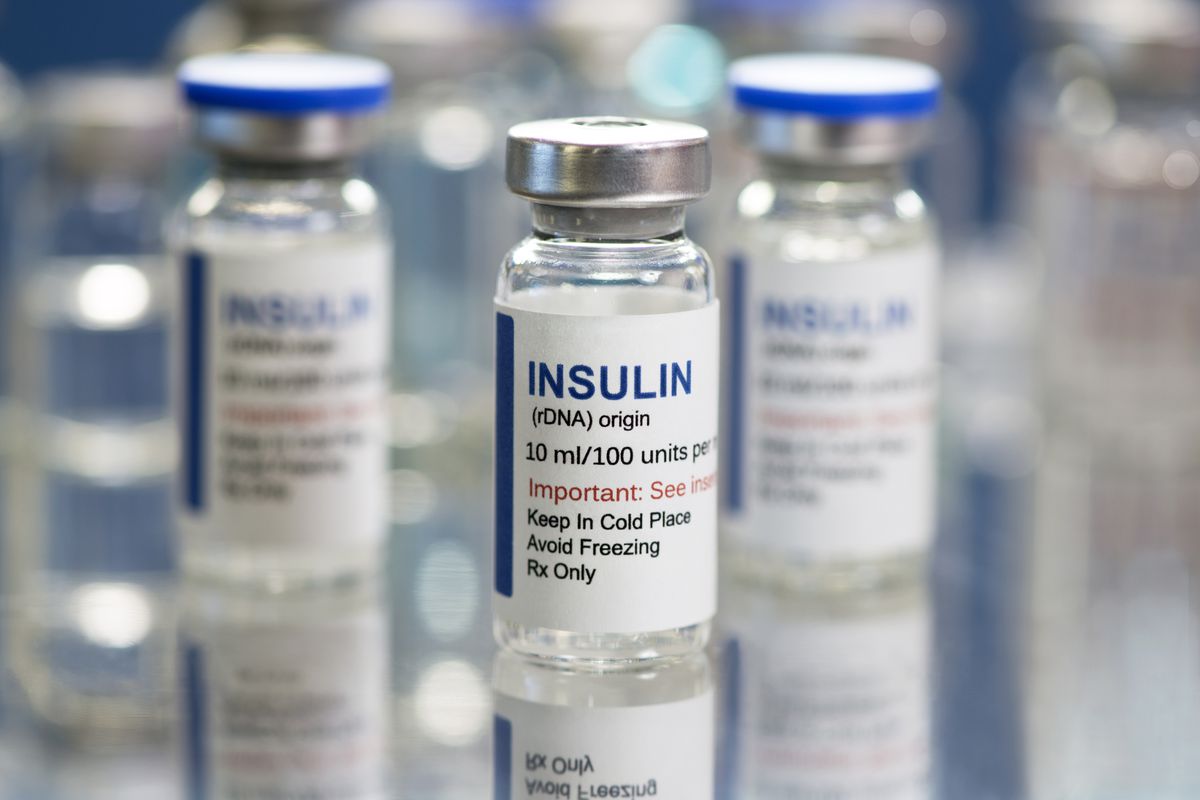5 Things a Person Diagnosed with Type 2 Diabetes Mellitus Should Know
Diabetes365 ≫ 5 Things a Person Diagnosed with Type 2 Diabetes Mellitus Should Know
SHARE
Written By

Wilburn D.
Fact Checked By

Chris Stocker
Diabetes 365 follows very strict guidelines for accuracy and integrity on all content.
To learn about Diabetes 365 commitment to transparency and integrity, read our Editorial Disclosure
Last Updated on April 15, 2025
Did you know that despite the fact that diabetes mellitus is characterized by a high blood sugar level, it is not necessarily caused by means of eating too many sweets or desserts? Or that the earliest recorded mention of the disease dates back to 1500 B.C.? Eventually, did you know that patients with diabetes had to keep a diet of up to 500 calories a day?
Diabetes belongs to diseases that are worth being discussed in detail. Therefore, let’s take a closer look at this article and check out what exactly is diabetes and what are the most important things a person who lives with the disease should be aware of.

What Is Diabetes Mellitus?
We bet you have already heard something about diabetes. Due to the fact that the disease is extremely widely spread all around the world (when being more precise, more than 420 million people on Earth live with diabetes these days), it is essential to figure out what it is.
- In simple terms, diabetes mellitus is a chronic disease that prevents your body from transforming food into energy in a proper way. Here is how the process of energy production should work in a human body under normal circumstances:
- The food you intake is broken down into a number of components, glucose (or, simply speaking, sugar) being one of them;
- The increased level of glucose in your blood, in its turn, signals your pancreas to start releasing insulin;
- Successively, insulin serves as the main power that transports glucose from your bloodstream to your body cells where it is transformed into energy.
However, the above-mentioned process does not function properly in case you live with diabetes. Namely, there appears one of the following issues when it comes to the way your body functions:
- The amount of insulin that is produced by your pancreas is either too tiny or absent;
- Insulin is not used the way it should be used.
Eventually, both health conditions that are enumerated above will lead to too high blood glucose levels. As well, they will eventually serve as diabetes risk factors for experiencing such serious health issues as:
- Cardiovascular disease;
- Loss of vision;
- Kidney disease (or even kidney failure);
- High blood pressure;
- And other diabetes-related complications.
Thus, people who live with diabetes would have to manage it efficiently to prevent the foregoing health problems.
What Are the Ways of Managing Diabetes?
Luckily, there exists a whole bunch of methods of diabetes management. Below, you will find the overall description of the most basic ones.
A side note: Please keep in mind that there exist three main types of diabetes: type 1, type 2, and gestational diabetes. Each of them has its own peculiarities and should be treated in a different way.
Regular Health Screening
The most efficient method to treat any disease is to prevent it, right? Indeed, one of the primary ways of treating diabetes is to diagnose it early enough. Therefore, it is essential to do regular blood glucose control on a regular basis. Here is the list of health screenings you might apply:
- Oral glucose tolerance test (or, as it is also called, fasting glucose test);
- FPG (fasting plasma glucose) or RPG (random plasma glucose) testing;
- Etc.
So, make sure to visit your doctor from time to time to keep your blood sugars under control.
A side note: In case of having type 1 or type 2 diabetes, you might also undergo continuous glucose monitors as a part of your diabetes self-management agenda. So, how about asking a diabetes educator whether he or she might provide you with more details on this option?

Healthy Lifestyle
Believe us or not, healthy lifestyle changes might serve as an efficient way to manage high blood sugar levels. Both type 1 and type 2 diabetes might be substantially improved by means of:
- Healthy eating;
- Physical activity;
- Losing weight;
- Etc.
Therefore, make sure to keep eating healthy foods, exercise regularly, and control your body weight as a part of your diabetes care so that you will be able to achieve lower blood sugar levels.
Medication Intake
Eventually, the intake of diabetes medications is one more effective way to avoid diabetes complications and get rid of too much glucose in your blood. Namely, you might do your blood sugar control by means of insulin therapy. This treatment type will allow you to achieve your target blood sugar levels by means of the intake of insulin-based preparations or their analogs. When being more precise, you might make use of:
- An insulin injection;
- The intake of oral diabetes medication;
- Etc.
Thus, insulin-based medication intake is an efficient way to manage diabetes and normalize your blood glucose level.
What Are the Most Important Things a Person with Diabetes Should Know?
In case of having diabetes, you’ll need to be aware of a number of things that might come in handy to maintain the normally low blood sugar level. So, how about going through five main things a person diagnosed with diabetes should know.
#1: Insulin in Canada Is Cheaper than in the U.S.
A vast number of people with type 1 and type 2 diabetes are oftentimes dependent on the regular intake of insulin. Therefore, it is vital for them to find a stable and reliable supplier of the medication. And, naturally, the more beneficial prices a supplier has, the better it is for the client.
Thus, the first thing a person diagnosed with diabetes should be aware of is that the price of insulin in Canada is way cheaper if compared to the one in the U.S., mainly because of the government regulations on prescribed drug prices.

#2: Humalog and Humulin Are Among the Most Popular Insulin Brands
Another thing that people who live with diabetes should be aware of is that Humalog and Humulin belong to the most popular brands of insulin preparations and their analogs. While producing the preparation in an assortment of options such as vials, pens, and cartridges, they are convenient in terms of their usage and suitable for patients with various demands.
A safety note: Please note that it is a task of a knowledgeable health care practitioner to prescribe the type of insulin that will fit your individual needs best.
#3: Increased Hunger and Thirst Are Among the Main Diabetes Symptoms
In case of having type 1 or type 2 diabetes, it is essential to know what are the most typical symptoms of the disease. Check out the list of the most widely spread ones below:
- Increased hunger and thirst;
- Blurred vision;
- Tiredness;
- Dry skin;
- Cold limbs;
- Etc.
#4: Unless Treated Properly, Diabetes Might Lead to Serious Digestive and Kidney Diseases
A very significant thing a diabetic should be aware of is that poorly controlled diabetes oftentimes leads to the increased risk of such diseases as:
- Digestive disease;
- Kidney disease;
- Heart failure;
- Stroke;
- And so on.
Thus, make sure to run an efficient disease control to minimize the appearance of the above-mentioned risk factors.
A side note: And vice versa, there exist certain diseases that might lead to diabetes. For instance, such health conditions as polycystic ovary syndrome or obesity might lead to type 1 or type 2 diabetes.
#5: Not Only Insulin Injections but Also a Balanced Diet Might Normalize Blood Sugar Levels
Finally, it is also essential to know that, apart from diabetes-related medications, you might also normalize your blood glucose levels by means of a balanced diet. The thing is that maintaining a healthy weight might efficiently assist people with type 1 and type 2 diabetes in managing blood sugar levels within their bodies. Thus, maintain a healthy diet and exercise on a regular basis to promote your weight loss if needed.
A Bottom Line
All in all, children, young adults, adults, or seniors who live with type 1 or type 2 high blood glucose levels have to dedicate enough time and effort to their diabetes education. The more things about the disease you know, the better your health care maintenance will be. So, educate yourself on a regular basis and stay healthy at all times!
 Wilburn D. is a editor and consultant endocrinologist at the University of California-Berkeley
Wilburn D. is a editor and consultant endocrinologist at the University of California-Berkeley
